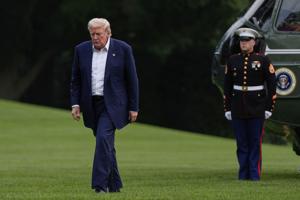The Trump administration is set to launch a new private health tracking system, a controversial initiative that aims to revolutionize access to medical records but has already ignited significant privacy concerns among experts and digital rights advocates.
This groundbreaking system, dubbed by some as “Making Health Technology Great Again,” intends to allow Americans to seamlessly share their personal health data and medical records with participating private technology companies. While proponents tout its potential to broaden access to crucial health information and provide digital tools for managing conditions like diabetes, critics are raising alarms over the extensive sharing of highly sensitive personal data and the inherent ethical and legal dilemmas.
The initiative comes amidst a broader backdrop of the administration’s approach to data privacy, which has previously faced scrutiny for its handling of personal information. Digital privacy activists have swiftly voiced their apprehension, highlighting potential vulnerabilities and the implications of such widespread data collection and transfer for individual autonomy and security in an increasingly digital landscape.
Beyond health technology, the administration has also been active on other economic fronts. Treasury Secretary Scott Bessent’s recent remarks regarding a new law as a “back door for privatizing Social Security” have sparked considerable debate, especially given the president’s repeated campaign promises to protect the program. Concurrently, new tariffs imposed on goods from India signal a continued focus on revised trade policies.
In international affairs, the administration has advanced agreements like the one with Chile to deploy biometric technologies. This collaboration aims to enhance migration control and disrupt criminal networks by allowing the sharing of sensitive data such as fingerprints and iris scans with the Department of Homeland Security, drawing a mixed response concerning its implications for civil liberties and international cooperation.
Domestically, the administration has also faced judicial challenges regarding the operations of government-run news agencies like Voice of America (VOA), which has seen significant disruption and staff reductions under new leadership. Concurrently, concerns have escalated over alleged obstruction of Congressional oversight at U.S. Immigration and Customs Enforcement (ICE) facilities, with reports of members of Congress being denied access.
The internal political landscape continues to be shaped by figures such as Kari Lake, an adviser appointed to run government news agencies, who has overseen significant changes. Furthermore, the influence of commentators like Loomer on White House personnel decisions, coupled with discussions around the politicization of the military and legislative blockades on issues like stock trade reviews, underscore the complex and often contentious dynamics within the capital.
Significant economic measures, including the closure of the “de minimis” loophole, have been implemented to inspect and tax all incoming goods, thereby impacting online merchants like Temu and Shein. These actions are part of a broader strategy to rebalance trade flows and protect domestic industries, alongside substantial investment and energy agreements forged with nations like South Korea.






Leave a Reply